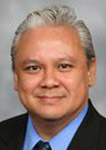Today’s disasters are more frequent and more complex than ever before. Although governments at all levels have risen to the occasion by training personnel and securing equipment and resources, there will always be a lack of manpower. This gap has been addressed using volunteers, who – despite having the best of intentions to help those in need – often lack the requisite knowledge, skills, and abilities.
In order to address this, the Citizen Corps was created through the Federal Emergency Management Agency. Its purpose is to provide education and training to individuals who wish to make their communities safer, stronger, and better prepared to withstand natural and manmade disasters. As stated on the Broward County, Florida, Emergency Management Agency Citizen Corps webpage, the following organizations help citizens to be involved and trained:
Community Emergency Response Team (CERT) – Volunteers are trained by professionals to take care of themselves in the first days following a major disaster. The program is administered by U.S. Department of Homeland Security. With basic skills training, these teams are able to prepare their homes and neighborhoods before a disaster, and immediately assist those in distress once the danger has passed.
The Fire Corps promotes the use of citizen advocates to enhance the capacity of resource-constrained fire and rescue departments at all levels: volunteer, career, and combination. Fire Corps provides resources to assist fire and rescue departments in creating opportunities – including fire safety outreach, youth programs, and administrative support – for citizen advocates and promotes citizen participation. Fire Corps is funded through the Department of Homeland Security and is managed and implemented through a partnership between the National Volunteer Fire Council, the International Association of Fire Fighters, and the International Association of Fire Chiefs.
USAonWatch-Neighborhood Watch works to provide information, training, and resources to citizens and law enforcement agencies throughout the country. In the aftermath of 9/11, Neighborhood Watch programs have expanded beyond their traditional crime prevention role to help neighborhoods focus on disaster preparedness, emergency response, and terrorism awareness. USAonWatch-Neighborhood Watch is administered by the National Sheriffs’ Association in partnership with the Bureau of Justice Assistance, U.S. Department of Justice.
The Medical Reserve Corps (MRC) Program strengthens communities by helping medical, public health, and other volunteers offer their expertise throughout the year as well as during local emergencies and other times of community need. MRC volunteers work in coordination with existing local emergency response programs and also supplement existing community public health initiatives, such as outreach and prevention, immunization programs, blood drives, case management, care planning, and other efforts. The MRC program is administered by the U.S. Department of Health and Human Services.
Volunteers in Police Service (VIPS) works to enhance the capacity of state and local law enforcement to utilize volunteers. VIPS serves as a gateway to resources and information for and about law enforcement volunteer programs. Funded by the U.S. Department of Justice, VIPS is managed and implemented by the International Association of Chiefs of Police.
These programs have been successful, but additional effort should be implemented to get more out of the volunteers who wish to do more and be more effective. Examples of providing more opportunities include: integrating the Medical Reserve Corps component in southern Florida with local hospitals and Broward Health Systems; having the South Florida Regional Citizen Corps Taskforce share information with prophylaxis support training; and piloting a one-day course on a Saturday with Texas A&M Engineering Extension Service (TEEX) to encourage more volunteers to train in this capacity.

Freddy Zelaya Jr.
Freddy Zelaya Jr. is a 24-year veteran of public safety. He currently serves as the emergency management coordinator, Community Emergency Response Team (CERT) program manager, Fire Explorer Program manager, FEMA/DHS and UASI (Urban Area Security Initiative) grant manager, FEMA adjunct instructor, and the South Florida Regional Citizen Corps Taskforce chairperson with the City of Fort Lauderdale Emergency Management Bureau with the Fire-Rescue Department. As the EM coordinator, he works in partnership with the government of Chile to build the Community Emergency Response Team in Santiago De Chile. With over 20 years of experience managing volunteers specializing in disaster volunteer management, he co-founded the Broward County Citizen Corps Council and South Florida Regional Citizen Corps Taskforce and currently chairs the South Florida Regional Citizen Corps Conference and Drill Exercise Committee. He is the recipient of many FEMA, CERT, and other volunteer awards.
- This author does not have any more posts.

Romeo Lavarias
Romeo Lavarias, DPA, is an adjunct professor with Barry University’s Public Administration Program. He is a Certified Emergency Manager (CEM) with the International Association of Emergency Managers (IAEM) and is a certified Florida Professional Emergency Manager (FPEM) with the Florida Emergency Preparedness Association (FEPA). He is also the Emergency Manager for the City of Miramar, FL. He can be reached at rblavarias@miramarfd.org
- Romeo Lavariashttps://www.domprep.com/author/romeo-lavarias
- Romeo Lavariashttps://www.domprep.com/author/romeo-lavarias
- Romeo Lavariashttps://www.domprep.com/author/romeo-lavarias
- Romeo Lavariashttps://www.domprep.com/author/romeo-lavarias






